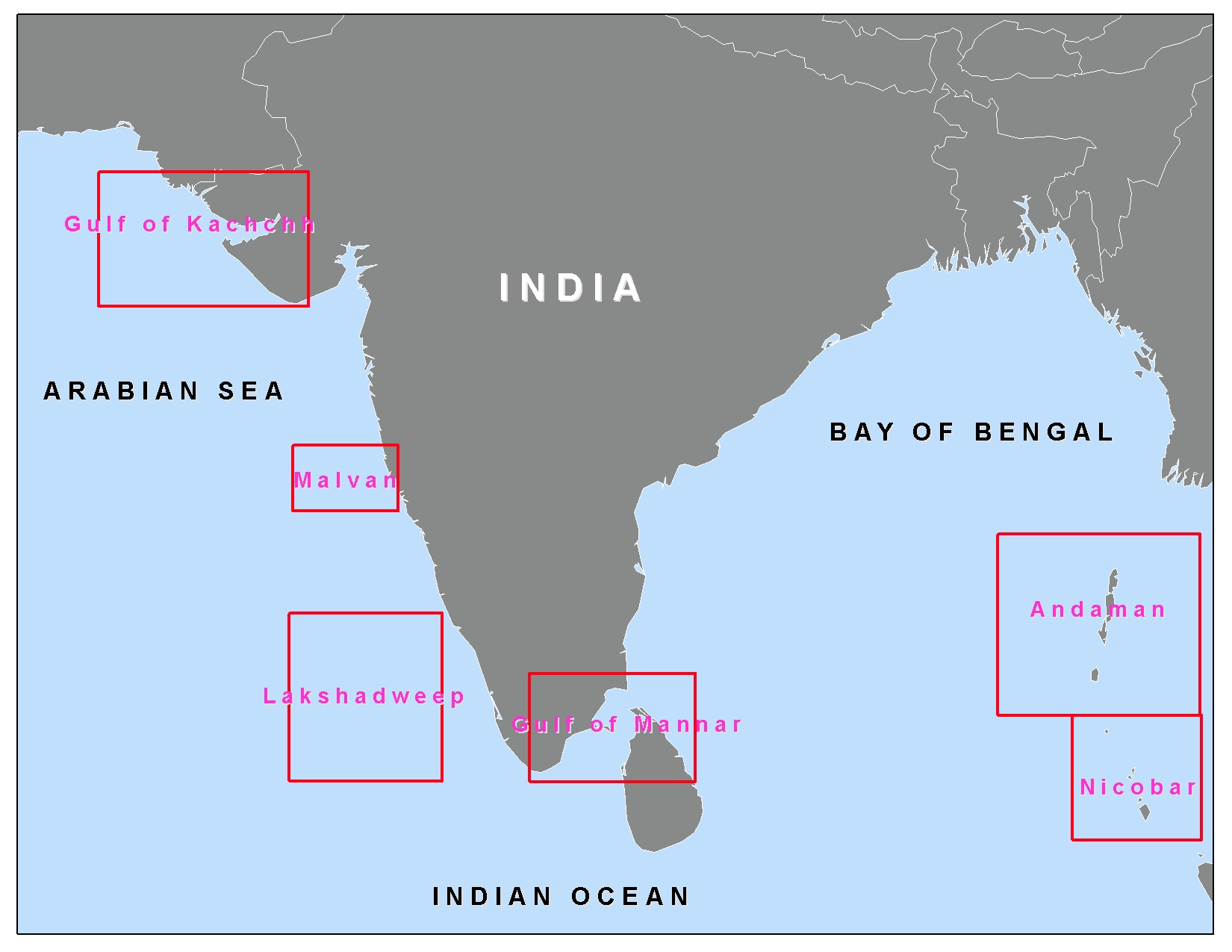ESSO - Indian National Centre for Ocean Information Services
(An Autonomous Body under the Ministry of Earth Sciences, Govt. of India)
Coral Reef Mapping and Reef Health Monitoring

Figure: Distrubution of Corals along the Indian Coast.
Coral reefs are one of the most biologically diverse marine eco-systems on the Earth. Corals grow over geological time scales and have been in existence for about 200 million years. Corals reached their current level of diversity 50 million years ago. Coral reefs play an important role in marine ecosystem and support the habitats of flora and fauna in the sea. Ecologically, coral reefs are important because they are the counterpart to the tropical rain forest in terms of species diversity and biological productivity in the Ocean. The vast diversity of animal and plant species that contributes to its system and genetic heritage that it represents are increasingly at risk, since the last few decades. Coral reef enables the formation of associated eco-systems which allow the formation of essential habitats, fisheries and livelihoods. In addition, coral reefs are climatologically important because they provide an accurate long-term record of the climate change and help in extending our knowledge of seasonal climate variability in many remote tropical oceans.
Coral reefs are present in the areas of Gulf of Kutch, Gulf of Mannar, Andaman & Nicobar, Lakshadweep Islands and Malvan. Coral eco-morphological maps were produced using satellite imageries for Andaman & Nicobar, Gulf of Kutch, Gulf of Mannar and Malvan areas are produced in 1:25,000 scales. These maps indicate the condition of corals, density, etc. and will be baseline information. It is proposed to bring out such maps at periodical frequency for comparing the conditions and the extent of the corals and for taking appropriate action to protect the coral eco-system.
Major threats for the corals
- Natural: Environmental-Temperature, Sediment Deposition, Salinity, pH, etc
- Anthropogenic: Mining, Bottom Fishing, Tourism, pollution, etc.
Background
Currently, there are many global initiatives such as Global Coral Reef Monitoring Network (GCRMN), Global Coral Reef Alliance (GCRA), and International Coral Reef Initiative (ICRI) playing an important role in monitoring the reef zones and raising awareness in the public. To increase awareness regarding the importance of reefs, the ICRI has declared the year 2008 as the International Year of the Reef. Similarly, the Ministry of Environment and Forests (MoEF), India has included the studies on coral reef under the Coastal Zone Studies (CZS). Satellite Oceanography is the feasible cost-effective technology to address the mapping and monitoring aspects of the coral reefs. The baseline maps are on coral eco-morphology for the Indian Reefs except Lakshadweep have been prepared.
Objectives
- Monitoring of Coral Reefs
- Early warning on coral bleaching
- Generation of Health bulletins
Applications
- Management of Coral Environs
- Impacts
- Research



